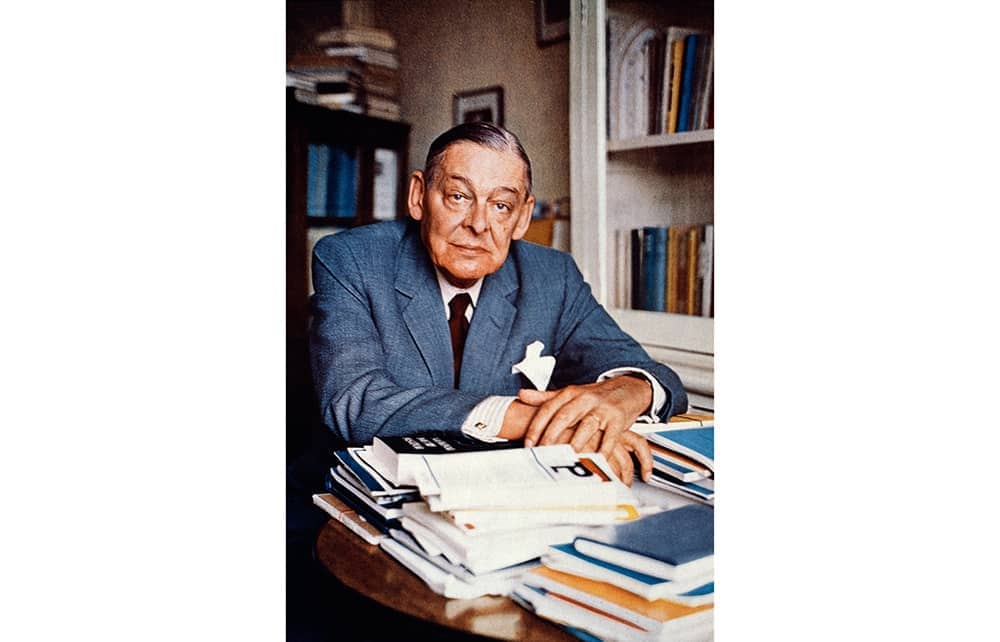For much of his life T.S. Eliot was surrounded by an aura of greatness: people accepted it, and behaved accordingly. That kind of consensus is not helpful for a writer or his works, as Eliot himself clearly saw, observing that nobody had ever written anything significant after winning the Nobel Prize for Literature – true at the time and mostly true since. His work is now in the position of Hamlet when he wrote a famous essay on the play: that the universal agreement of its greatness had hidden an understanding of its failures, its strangeness and what it couldn’t do. We take the greatness of Eliot’s poetry pretty much for granted; but in the centenary of The Waste Land, some cracks are beginning to appear in a once unassailable reputation.
The story that Robert Crawford tells has a willed aspect and one that can’t be controlled: what posterity is going to think. Eliot allowed the dazzling innovation and lyric force of The Waste Land to settle in. As a public intellectual and founding editor of Faber and Faber, he became the greatest impresario of poetry of the century, identifying the best poets of every generation, from W.H. Auden to Ted Hughes. They were often poets very unlike himself, and publishing them says a lot for his intelligent breadth of curiosity.
There is also his private life, which has attracted much attention, as if it told us more about his culture than about him. His first marriage, to Vivienne Haigh-Wood, was a disaster; they should never have gone near each other. Vivienne was a talented writer who was profoundly unstable and we cannot draw any kind of wisdom from what she said or did. When she told an embarrassed party that ‘I loathe men – all men, just loathe them’, it was not out of any special insight but because she was mad.







Comments
Join the debate for just £1 a month
Be part of the conversation with other Spectator readers by getting your first three months for £3.
UNLOCK ACCESS Just £1 a monthAlready a subscriber? Log in